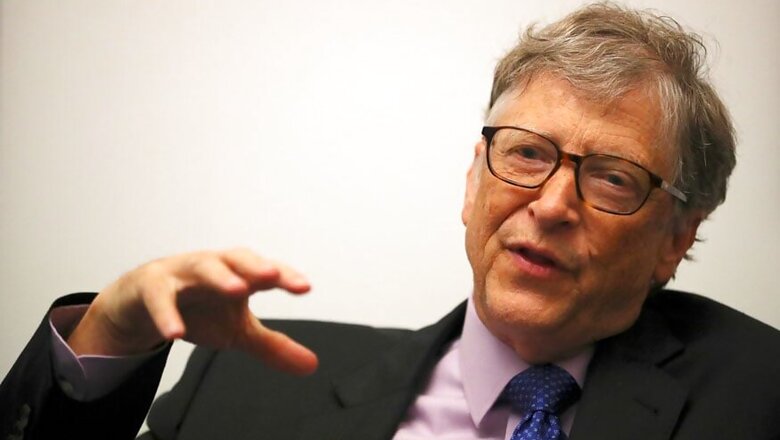
views
New Delhi: With countries, including the US, reeling under the onslaught of the novel coronavirus outbreak, Microsoft co-founder Bill Gates has outlined three steps that the US government must take to contain the spread of coronavirus.
In a column for The Washington Post, Gates said that the country needs a “consistent nationwide approach to shutting down.”
He said that despite repeated calls for shutdown by global public health experts, some countries and states have ignored the warnings. “In some states, beaches are still open; in others, restaurants still serve sit-down meals,” he adds. Terming this a “recipe for disaster”, the American magnate said that if people move unhindered across state lines, so could the virus.
Gates urged US leaders to ensure that the lockdown process is strictly followed and said that shutdown anywhere means “shutdown everywhere.”
“Until the case numbers start to go down across America — which could take 10 weeks or more — no one can continue business as usual or relax the shutdown,” The Washington Post article read.
Cautioning against the long-term economic fallout due to failure in implementing the shutdown, Gates said not only it increases the possibilities of prolonged economic damage, but it also increases the chances for the virus to return.
On the issue of mass testing, Gates said the federal government must ramp up its testing capabilities and make the tests available for everyone. “We should also aggregate the results so we can quickly identify potential volunteers for clinical trials and know with confidence when it’s time to return to normal,” Gates wrote.
Citing the example of New York, Gates said that the city had scaled up its capacity to over 20,000 tests in one day amid the national outbreak. He also mentioned emerging developments on the testing front such as the self-swab method created by the Seattle Coronavirus Assessment Network. This new testing kit allows patients to take their own samples and reduces the risk of health workers getting exposed to the virus.
Gates noted that the demand for tests would likely exceed the supply for some time due to the outbreak and said that it is essential that the government have a priority-based approach on who gets tested.
“First on the list should be people in essential roles such as health-care workers and first responders, followed by highly symptomatic people who are most at risk of becoming seriously ill and those who are likely to have been exposed,” he wrote.
He also said that the same rationale should be used for the availability of essential medical equipment such as masks and ventilators.
Gates laid emphasis on the need to stick to a data-based approach in developing treatments and vaccines. He said that scientists were working round the clock to help in pandemic response and it was imperative that leaders help them by not spreading rumours. He also urged people to not indulge in panic buying of drugs.
“We should stick with the process that works: Run rapid trials involving various candidates and inform the public when the results are in. Once we have a safe and effective treatment, we’ll need to ensure that the first doses go to the people who need them most,” he wrote.
He also highlighted the importance of developing a “safe and effective vaccine” instead of looking for a quick method to contain the spread.
“If we do everything right, we could have one in less than 18 months — about the fastest a vaccine has ever been developed,” Gates wrote.
However, he warned that the development of a vaccine was only half the fight. “To safeguard Americans and people across the world, we would require the manufacturing of billions of doses,” he explained.
Referring to his TED talk in 2015 in which he had warned world leaders about a global pandemic, he said that “we have a long way to go.” In his speech, Gates had called for preparations for a global pandemic by identifying weak links in systematic simulations.
The billionaire philanthropist, however, remains hopeful. “I still believe that if we make the right decisions now, informed by science, data and the experience of medical professionals, we can save lives and get the country back to work,” he wrote.

















Comments
0 comment